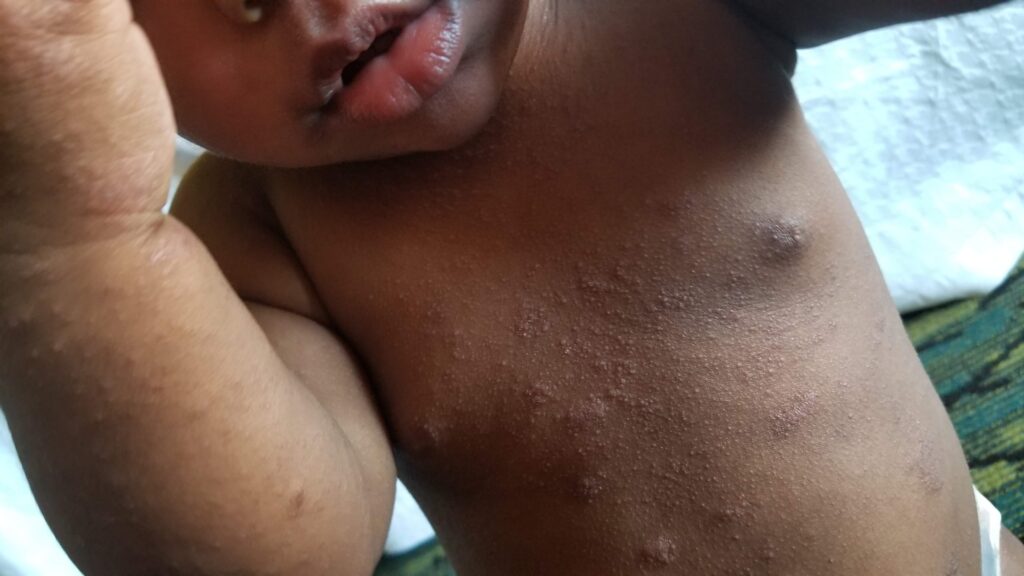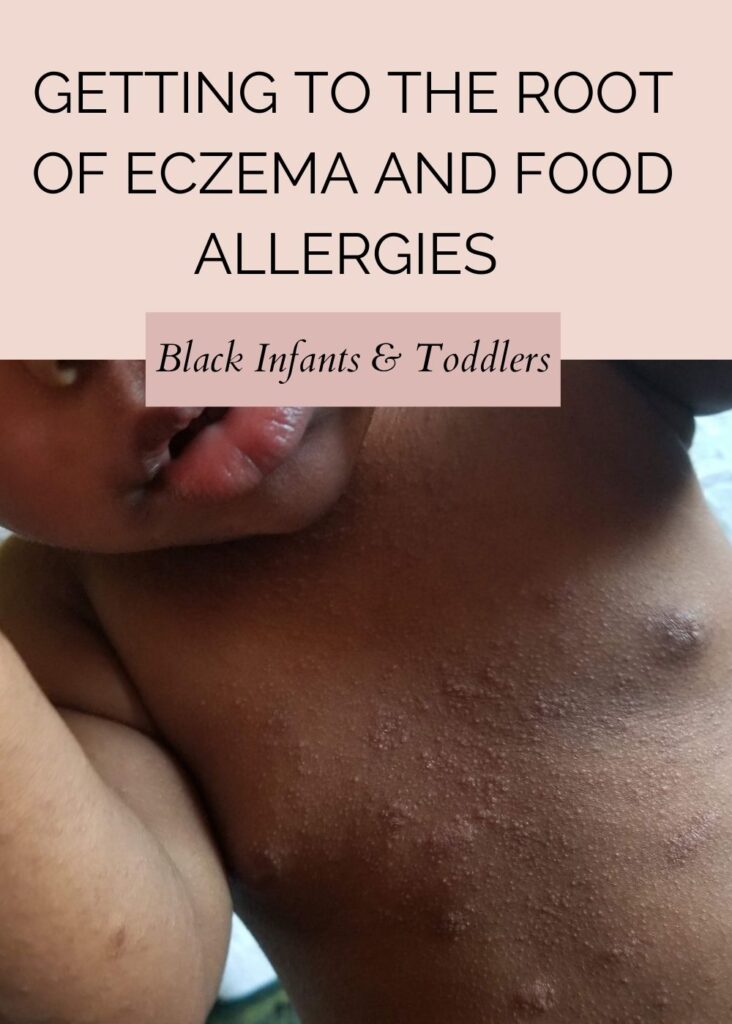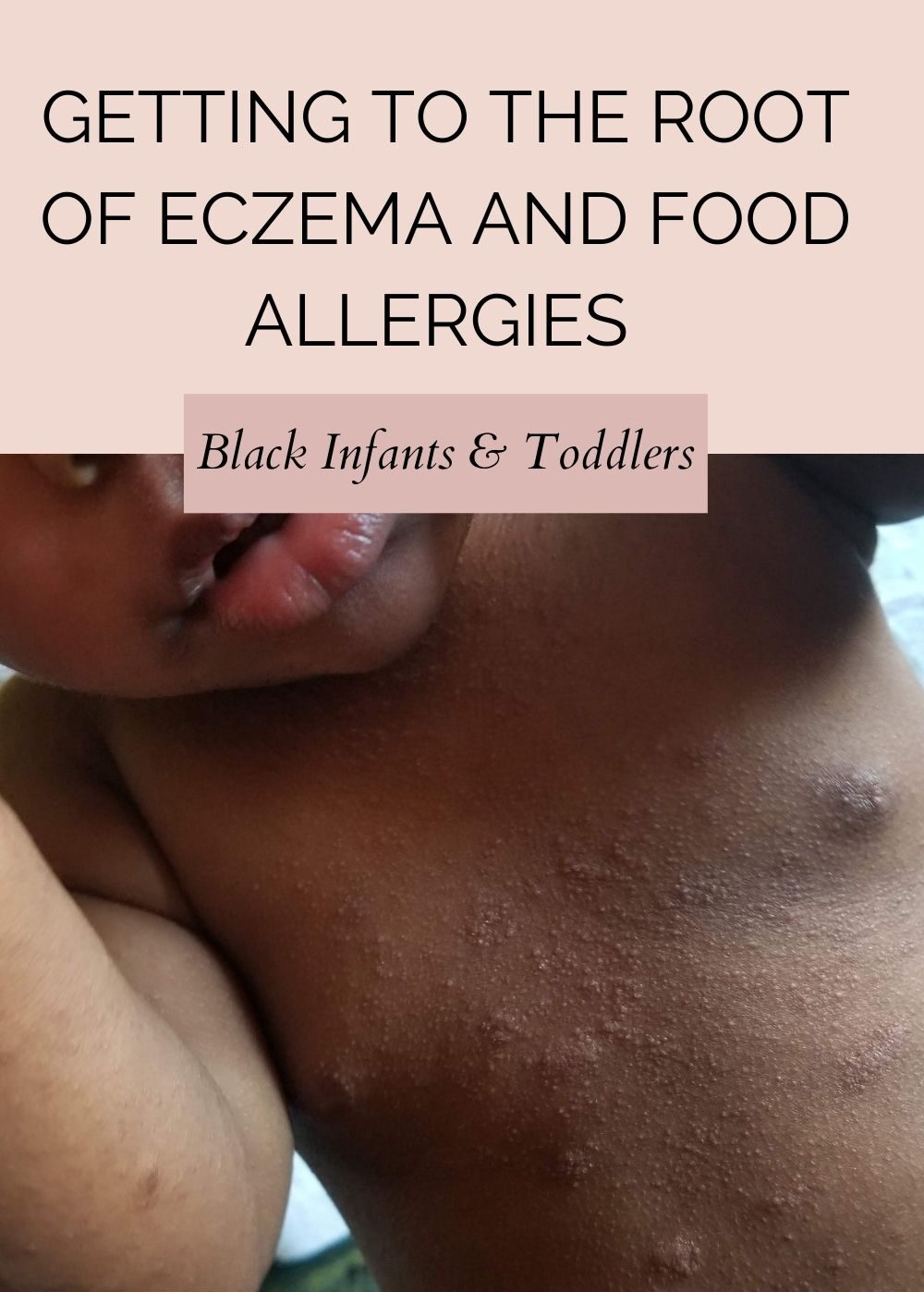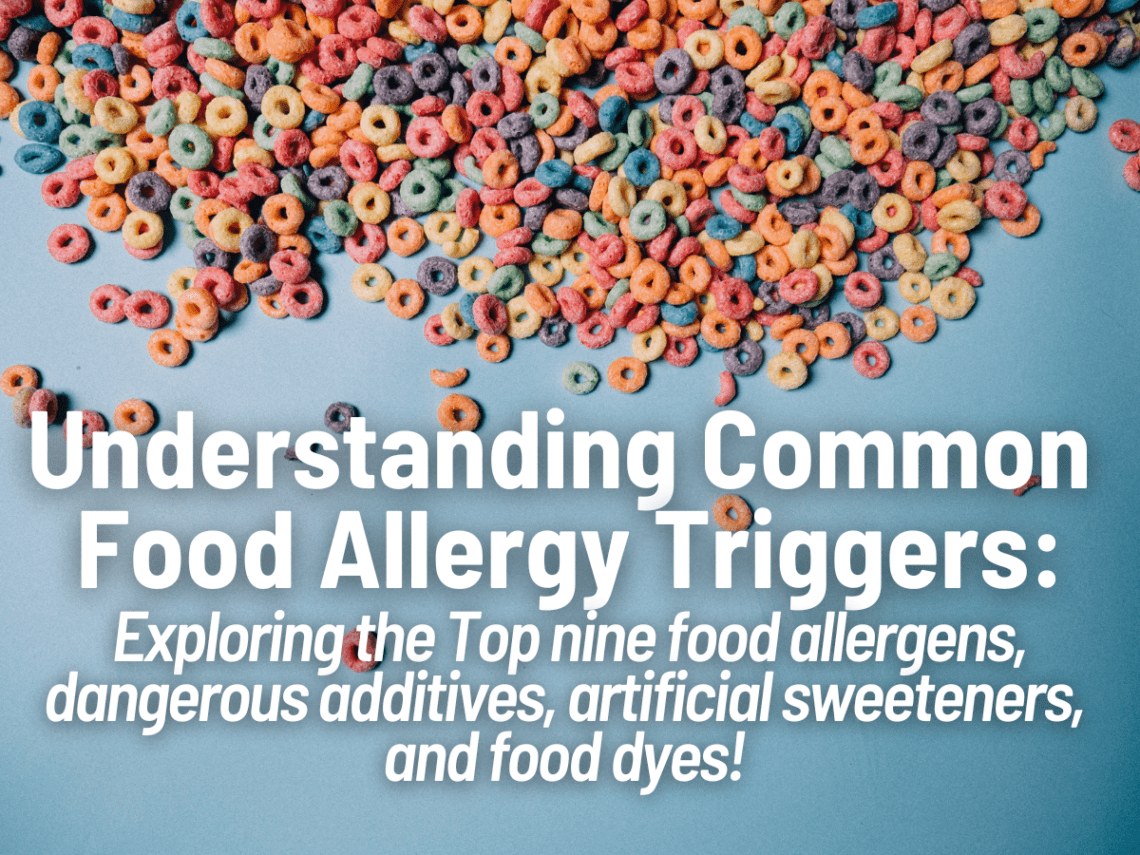Being part of mom support groups has been an invaluable source of connection and understanding for me. These groups offer a safe haven for mothers to share, vent, and ask questions about their journey through motherhood. However, in these communities, I’ve noticed a recurring theme – the same questions cropping up repeatedly. What has stood out the most for me are the inquiries about allergies and the signs of potentially severe food allergy symptoms. In the past three years, my life has become a crash course in food allergy management, and every day continues to bring new revelations on this subject. This post is dedicated to shedding light on food allergy symptoms, particularly eczema (atopic dermatitis), and the often-overlooked connection between the two.
Emory’s Early Signs of Food Allergies
Emory began showing symptoms of food allergies when she was just four months old. What’s fascinating is that she was exclusively breastfed until she reached nine months. This means that the allergens she reacted to were coming through my breastmilk. Despite our concerns, her pediatrician repeatedly dismissed her symptoms as “baby acne” and assured us that there was no need to worry. We were also bombarded with articles from well-meaning friends and family, all emphasizing the rarity of allergens passing through breastmilk.

A Critical Message for Parents
The lesson I want to impart to parents from this blog post is that food allergies in children often manifest early but are frequently overlooked. As parents, we have a keen sense when something isn’t right with our children. Emory’s skin was inflamed, itchy, scaly, and raised. She would incessantly scratch her face, mouth, and legs, day and night. It got to the point where we had to put gloves on her hands. After extensive observation, we decided to get her allergy tested at nine months, and she was diagnosed with allergies to the Top 8 allergens. While the diagnosis was a gut punch, it also provided clarity. Emory’s allergies have transformed our lives and our perspective on the world.
Key Terms to Understand
Let’s start by delving into some important terms when it comes to food allergies:
Top 8 Allergens: The “Top 8” allergens are the major food allergens by law and account for approximately 90% of all food allergies in the United States. These allergens include dairy, eggs, fish, shellfish, peanuts, tree nuts, wheat, and soy. It’s worth noting that there are also Top 14 allergens, which can be important to be aware of.
Intolerance vs. Allergy
Understanding the difference between intolerance and allergy is crucial. While I’ve avoided consuming dairy for most of my life due to digestive issues, my daughter’s dairy allergy results in more severe symptoms. An intolerance affects the digestive system, while an allergy impacts the immune system. Immediate signs and symptoms of a food allergy can include eczema, hives, wheezing, itching or tingling around the lips or mouth, swelling of the lips, tongue, or throat, coughing, shortness of breath, or vomiting. If you observe any of these symptoms in your child after eating, it’s essential to seek medical attention promptly.
Eczema (Atopic Dermatitis)
More often than not, eczema is the initial symptom of an allergy. Eczema, or atopic dermatitis, results from a combination of factors, including immune system activation, genetics, environmental triggers, and stress. It causes your immune system to react excessively to irritants or allergens, often leading to dry, itchy skin and rashes in specific areas like the face, elbows, knees, hands, and feet.

Identifying Eczema
There are several forms of eczema, but the most common ones in children are Seborrheic, Dyshidrotic, Contact, and Atopic eczema. Understanding your child’s specific type is essential for proper treatment.
Treating Eczema
Eczema must be treated at its source, which means identifying the allergen causing the reaction. For us, the elimination diet was the starting point. For two weeks, I eliminated the Top 8 allergens from my diet while breastfeeding. The improvement was remarkable, and Emory became a different baby. From that moment on, I continued to avoid allergens while breastfeeding. We maintained this for nearly three years until Emory weaned. Now, our challenge is ensuring she avoids allergens at school.
As Emory has grown, we’ve discovered additional allergens outside of the Top 8, such as sesame, sunflower, and seeded fruits. While there is no cure for food allergies, understanding them is the key to managing the symptoms effectively.
For parents whose children also suffer from seasonal outdoor allergies (e.g., pollen, ragweed), I encourage you to learn about Oral Allergy Syndrome (OAS), a condition related to food allergies. It’s a journey filled with challenges, but by sharing our experiences and knowledge, we can help one another navigate this complex world of food allergies and eczema.
Remember, you’re not alone in this journey, and knowledge is your most potent ally in keeping your child safe and healthy.
Elimination Diet recipes and other related content
Top 10 Allergy-Friendly Breakfast Recipes
6 allergy-friendly weeknight meal ideas for the new year
Fudgy Vegan Carob Zucchini Brownies | Gluten-Free
Easy Sautéed Spinach with Roasted Butternut Squash and Broccoli
Babies with food allergies | Easy DIY Organic Baby Food Recipes | Motherhood
Top Allergy-Friendly Products | Gluten-Free, Vegan and Plant-Based
LIKE THIS? PIN THIS POST!





